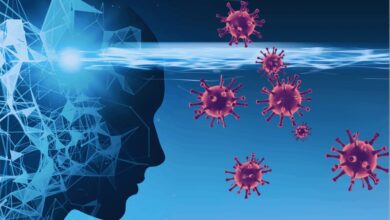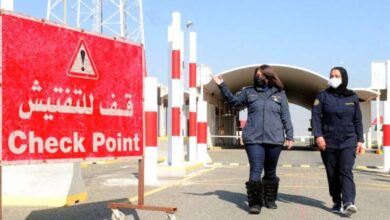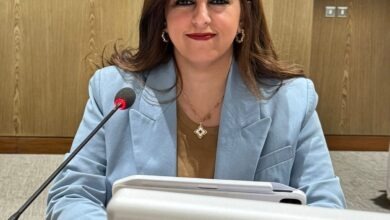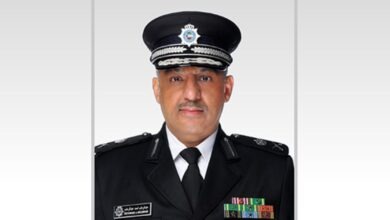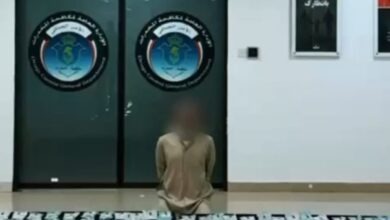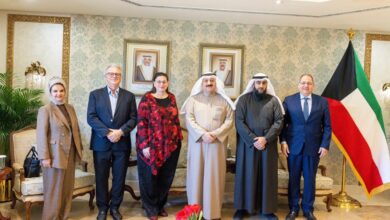KALD’s new ADHD unit will help parents obtain accurate diagnoses
Amal Ahmed Al Sayer, founder of the Kuwait Association for Learning Differences, noted that the association’s current headquarters, a private house, limits its ability to provide essential services to students and their families.

• “We must differentiate between learning disabilities and attention deficit disorder and hyperactivity, as they are distinct yet interconnected. For every ten people with attention deficit disorder, four have difficulty learning one or more skills, particularly in reading and writing,” said Amal Ahmed Al Sayer, founder of KALD.
In an exclusive interview with Al Jarida newspaper, AmalAhmed Al Sayer, founder of the Kuwait Association for Learning Differences (KALD), announced the upcoming opening of a unit for diagnosing ADHD.
Established in 2007, KALD is a non-profit humanitarian organization dedicated to supporting students with learning differences, including learning disabilities, attention deficit disorder, and hyperactivity, in special and qualitative education schools in Kuwait.
“The Board of Trustees chose the term “learning differences” to emphasize that individuals with these challenges are not only capable of learning but can also excel when provided with specialized teaching methods and psychosocial support from their families, schools, and communities,” said Al Sayer.
Excerpts from the interview:
What is the difference between learning differences or difficulties, attention deficit disorder, and hyperactivity, and what is the relationship between them?
We must differentiate between learning disabilities and attention deficit disorder and hyperactivity, as they are distinct yet interconnected. For every ten people with attention deficit disorder, four have difficulty learning one or more skills, particularly in reading and writing. Additionally, among ten individuals with learning difficulties, two are likely to have attention deficit disorder.
Academic learning difficulties in reading, writing, and mathematics are caused by a minor imbalance in the brain that affects the ability to access and interpret readable or audible information, without any hearing or vision problems.
For example, during reading, a student may confuse one letter with another, delete a letter, or add an extra word, resulting in slow reading and a lack of understanding of the material.
Attention deficit and hyperactivity disorder consists of three types: the first is hyperactivity, the second is attention deficit, and the third is a mixed type, where the student exhibits both hyperactivity and attention deficit.
Additionally, 40% of those with hyperactivity and attention deficit also experience learning and writing difficulties.
• Helping the students requires the involvement of three parties: the family, the school, and the community. What is the role of the family?
The first role of the family is to observe when a child has a problem and then educate themselves while seeking help from competent authorities to find solutions. The most crucial step is to request an early and accurate diagnosis for their child.
On this occasion, I would like to point out that the societyis currently working on opening a diagnostic unit to provide this service to parents and assist in proper diagnoses before treatment plans begin, which will soon be implemented.
• You have an awareness campaign about attention deficit hyperactivity disorder; can you tell us about it?
It is a campaign that we launch every October in conjunction with the International Campaign to Raise Awareness of Attention Deficit Hyperactivity Disorder. Visitors can benefit from the services we provide, such as consultations with specialists, assessments of the disorder’s indicators, and information about the integrated educational programs offered by the association.
This year, we are focusing on adults to raise awareness that many of them may have struggled in school, work, or social situations due to this disorder, and we encourage them to seek a diagnosis that leads to professional help in addressing their challenges.
• Do you have projects submitted to entities in the country?
Yes, we have submitted several projects to the state to bolster the services provided to students in this category. The most important of these is the Center for Educational Excellence for Learning Differences, which we hope will come to fruition soon. This project aims to offer academic, psychological, and social services to a large number of students. We are committed to educating adults about their ADHD struggles and inviting them to seek help.
• What obstacles do you face?
We face a significant challenge due to our limited space; the headquarters of the association is currently a private house that does not meet the extensive needs required to provide a variety of services to the largest number of students, their families, and their schools.
We offer academic, psychological, and social services at the association’s headquarters through an integrated educational program that has been operating since 2019 and has seen great turnout. Therefore, we need support to secure a more suitable headquarters to better serve those in need.
Civil society, no matter how much it contributes, will ultimately only reach a limited segment of the population. However, if this project were to receive state interest, it could become more widespread and impactful, as the state has greater resources and can provide better services for our children with disabilities.
• What do you think of the special education complexes project?
Kuwait is focused on integrating students with disabilities into general education schools, as seen in developed countries, which is essential for the future. However, this does not diminish the need for special education services. We believe that training teachers to effectively manage classes with these students is crucial for achieving successful educational integration.
We need strategic planning, and I am optimistic that the state is moving towards development in this field. It is important for citizens to understand and actively participate as partners in supporting these plans. The time when all responsibilities were placed solely on the state has passed; citizens also have a role in serving their country.
• What about the cooperation of the Ministry of Education with you?
In fact, we have been cooperating with the Ministry of Education in many areas. We are working together on the implementation of the Distinguished Teacher Award and the Persevering Student Project each year, and we have been able to execute these projects without any obstacles. However, we hope for even greater cooperation in planning all initiatives related to students with educational disabilities.
• How was your volunteering journey?
My volunteering journey began 18 years ago because I believe that the development of any country is not solely the responsibility of the state; citizens also have a role to play. We, as citizens, have a responsibility towards our homeland, and each of us must contribute in our respective fields to uplift our country.
When I noticed that many students at my son’s school were struggling with academic failure and the accompanying psychological and social issues, I realized that our children needed help. This realization prompted me to establish this association, as certain things can only be accomplished through organized work with legal status. The October campaign is launched annually in conjunction with the global event to raise awareness of the disorder.
• What message would you like to send to every citizen?
Every home must cultivate a capacity for understanding and accept the process of development and change, recognizing that it may cause some inconvenience to certain parties. Change takes time, and construction—especially human development—requires patience. Volunteering and experiencing the ability to give is a beautiful journey, and I believe everyone can agree on that.
Giving is something special, and Islam emphasizes the importance of giving and serving others, which carries a humanitarian message. I urge everyone to volunteer, as homelands are built and thrive through the efforts of their people.
• Is there a last word to seal?
I would like to commend the role of the media in conveying our message. Without the media, we would not have achieved our most important goal: raising awareness. Awareness is crucial for reaching the thousands of families and students that we strive to help.
Cooperation with the Ministry of Education for Teacher Training
Al Sayer confirmed that there is ongoing cooperation with the Ministry of Education in the field of teacher training, stating, “We are proud of this collaboration over the years and hope that it will continue.” She noted that the state is moving to implement the integration project in education, which aims to include students with special needs in the general education system.
This initiative requires providing the necessary support and services to enable these students to achieve their full educational potential, as well as preparing the educational field for this significant shift.
Al Sayer explained that the Kuwait Society for Learning Differences has the resources to train teachers in facilitating the integration of students with learning differences (such as learning disabilities, attention deficit disorder, and hyperactivity) using the latest scientific methods. We have reached out to the Ministry of Education regarding this matter and are awaiting approval for these programs.







